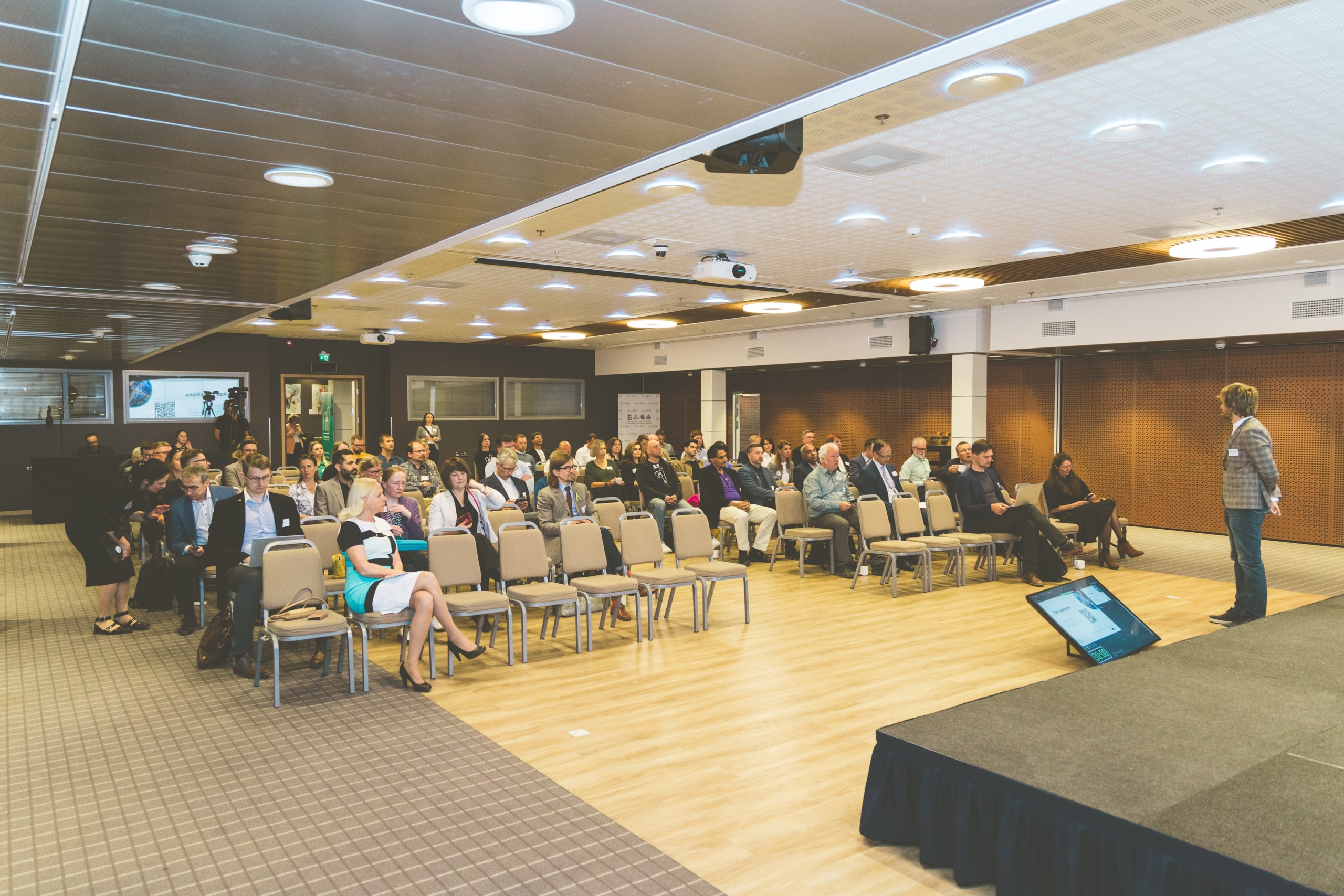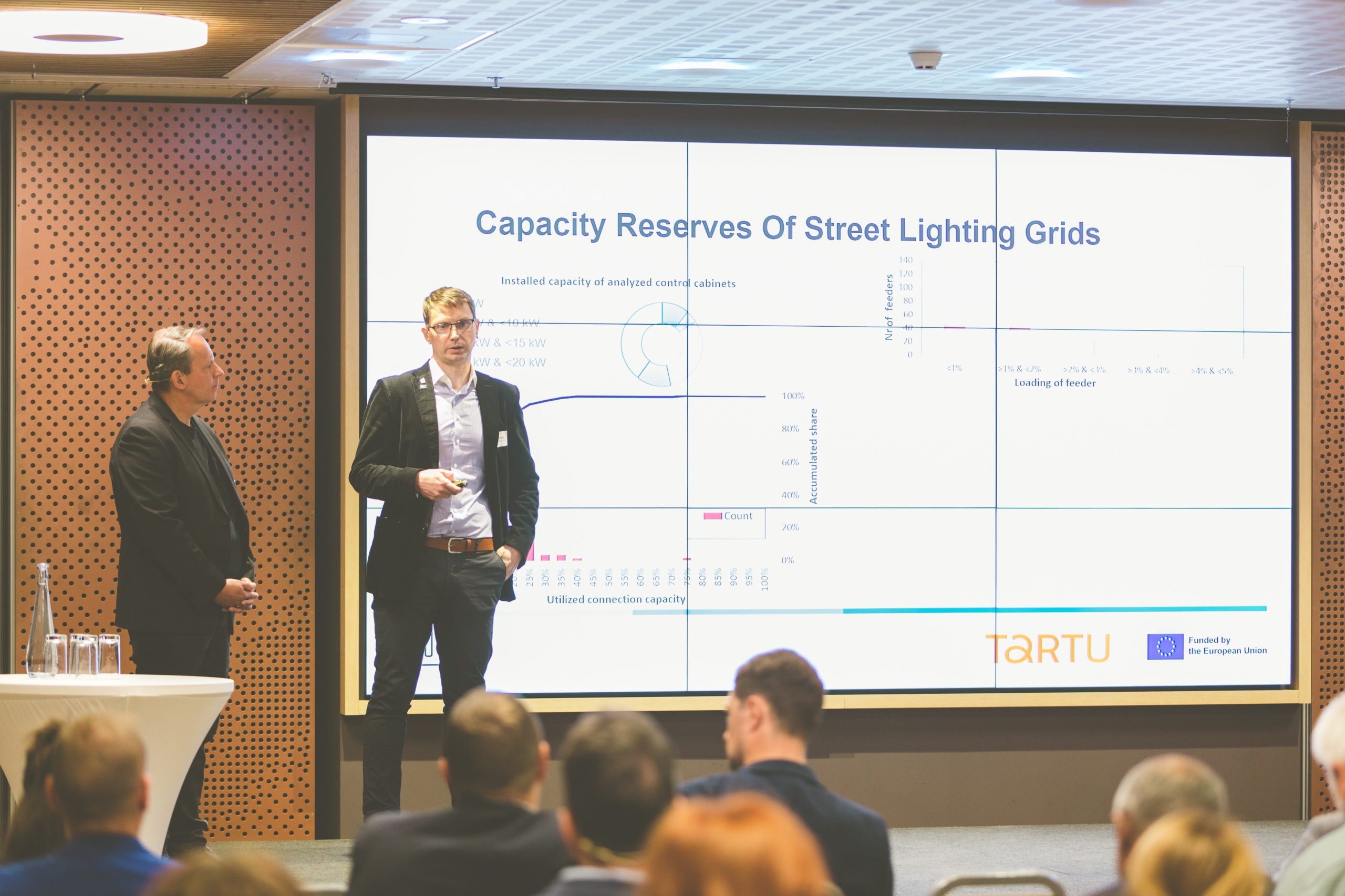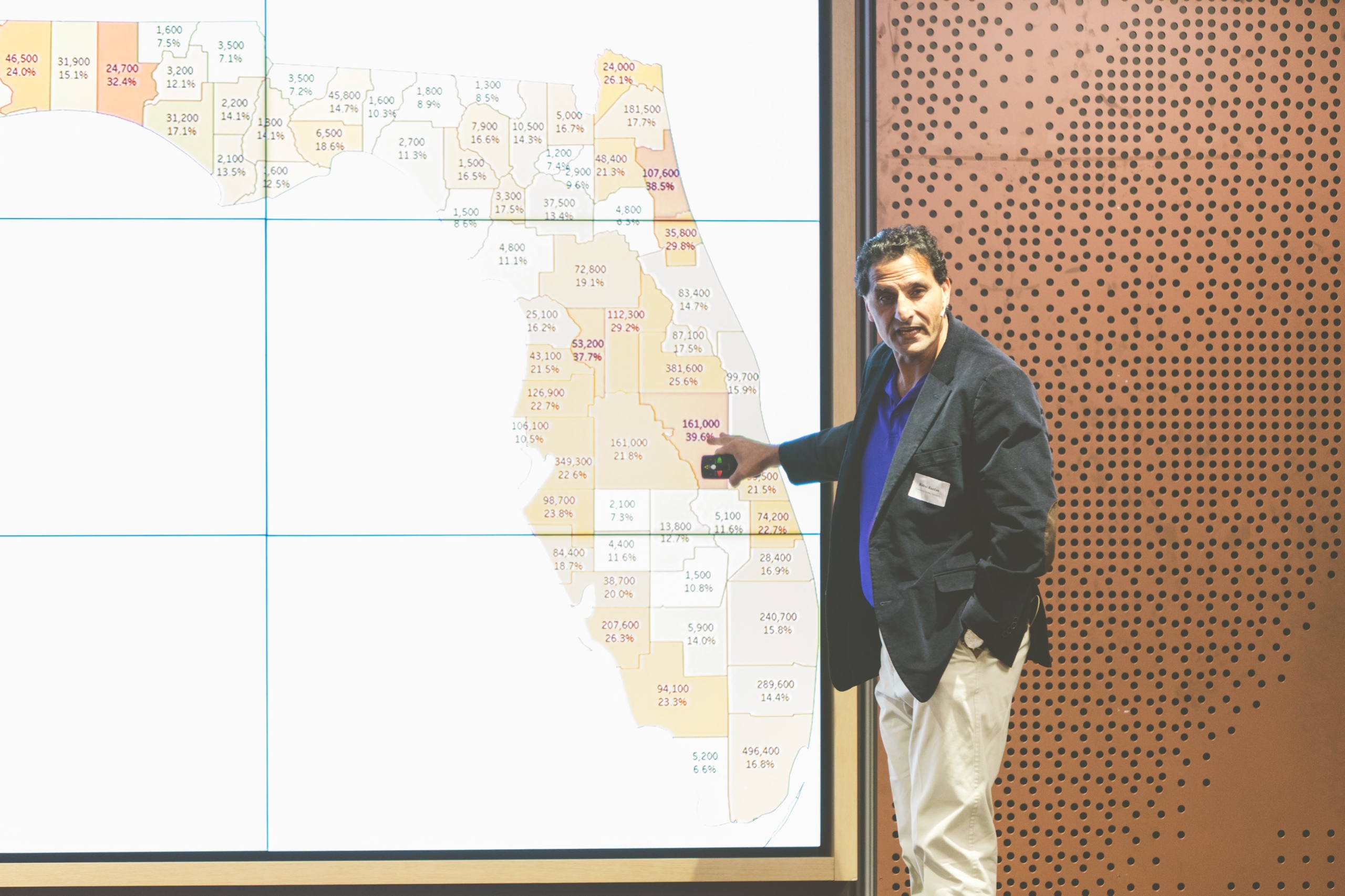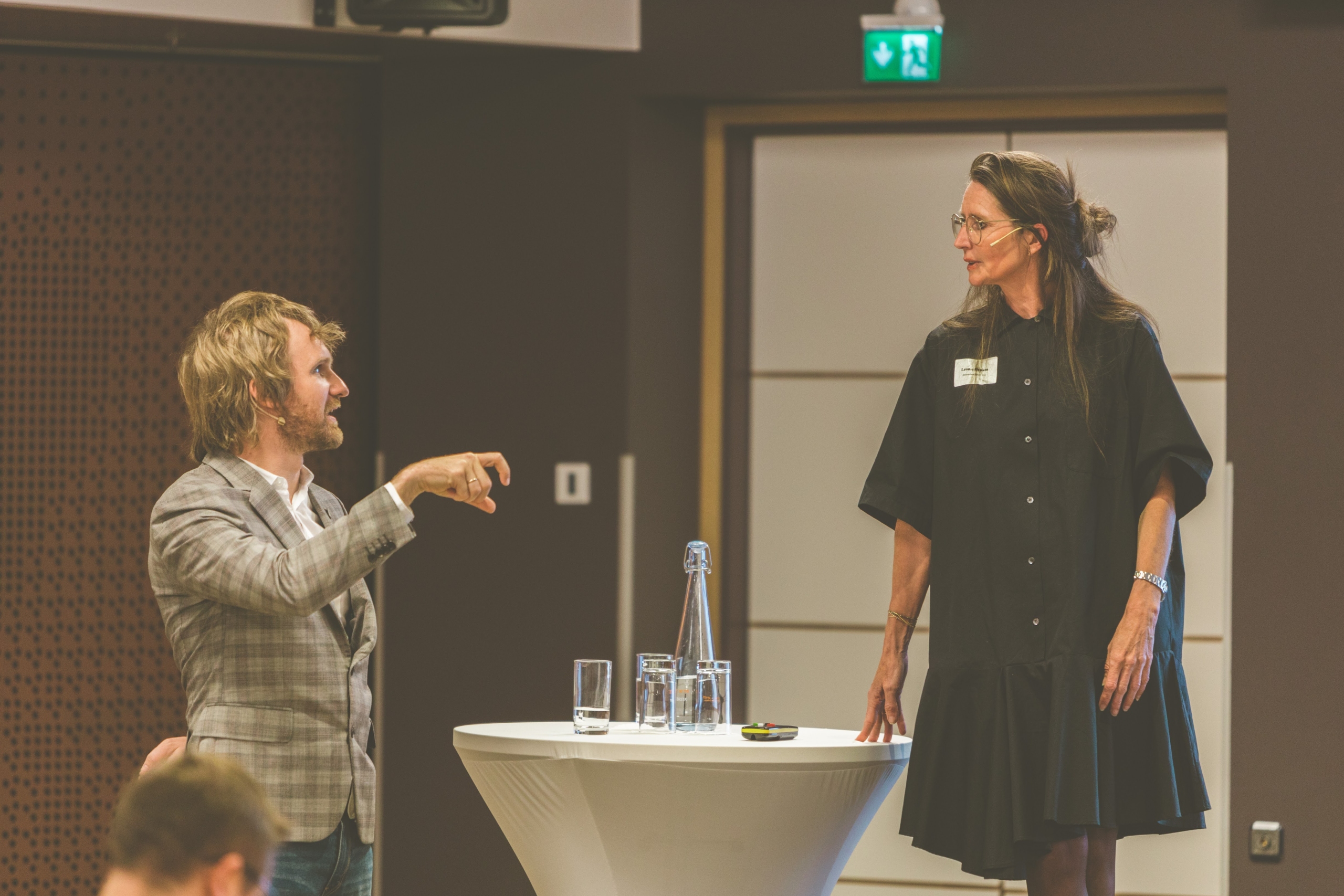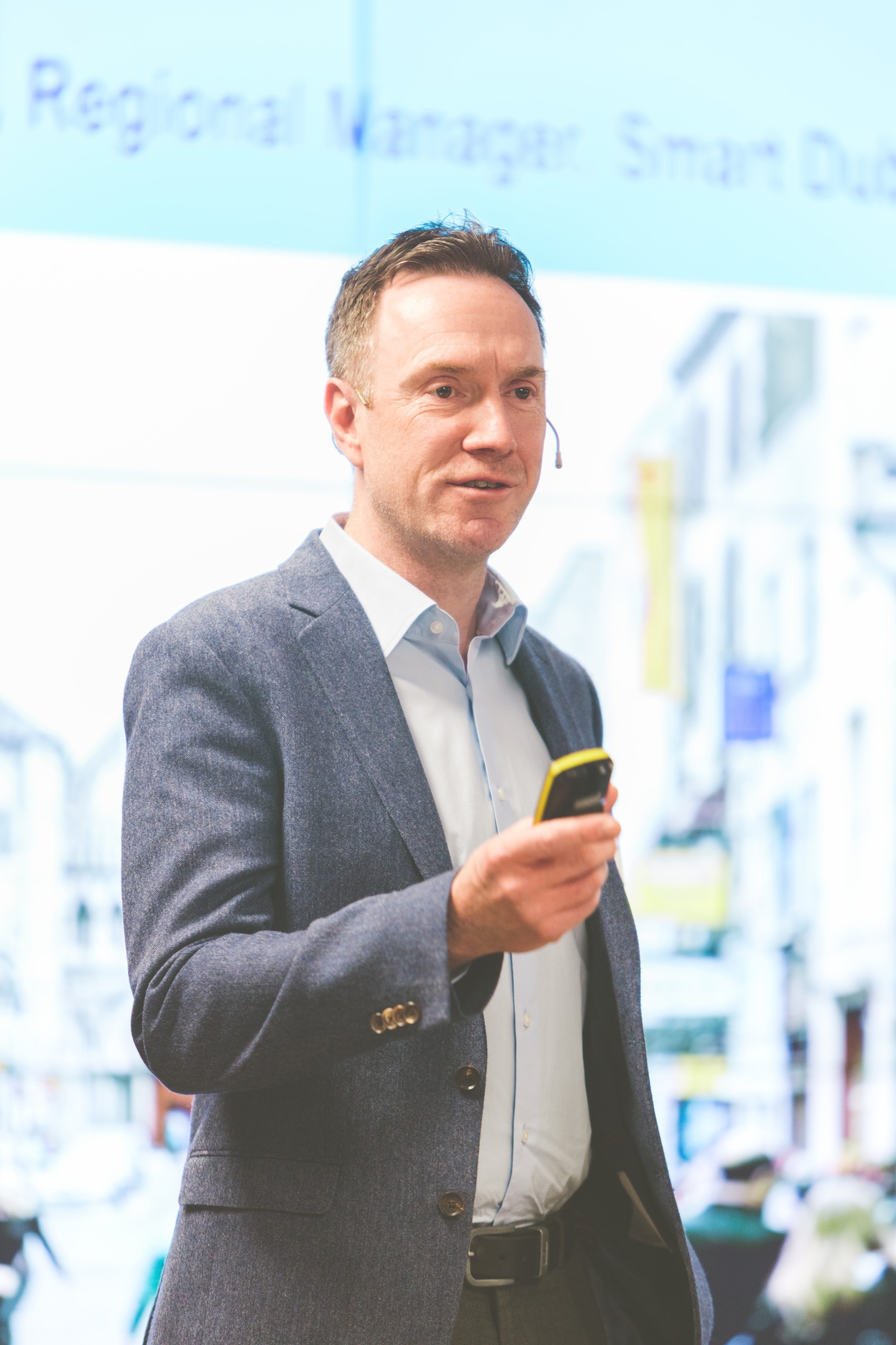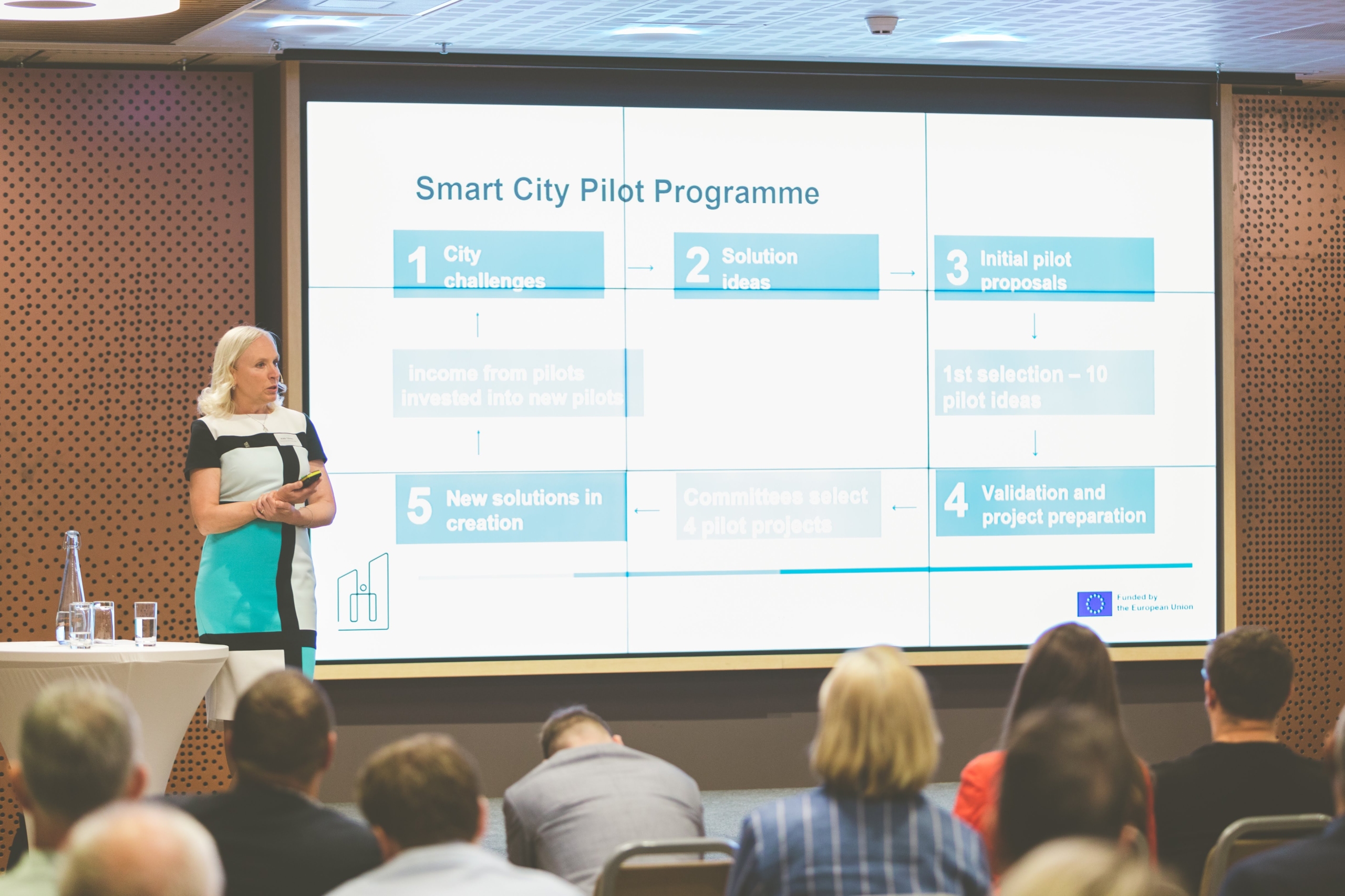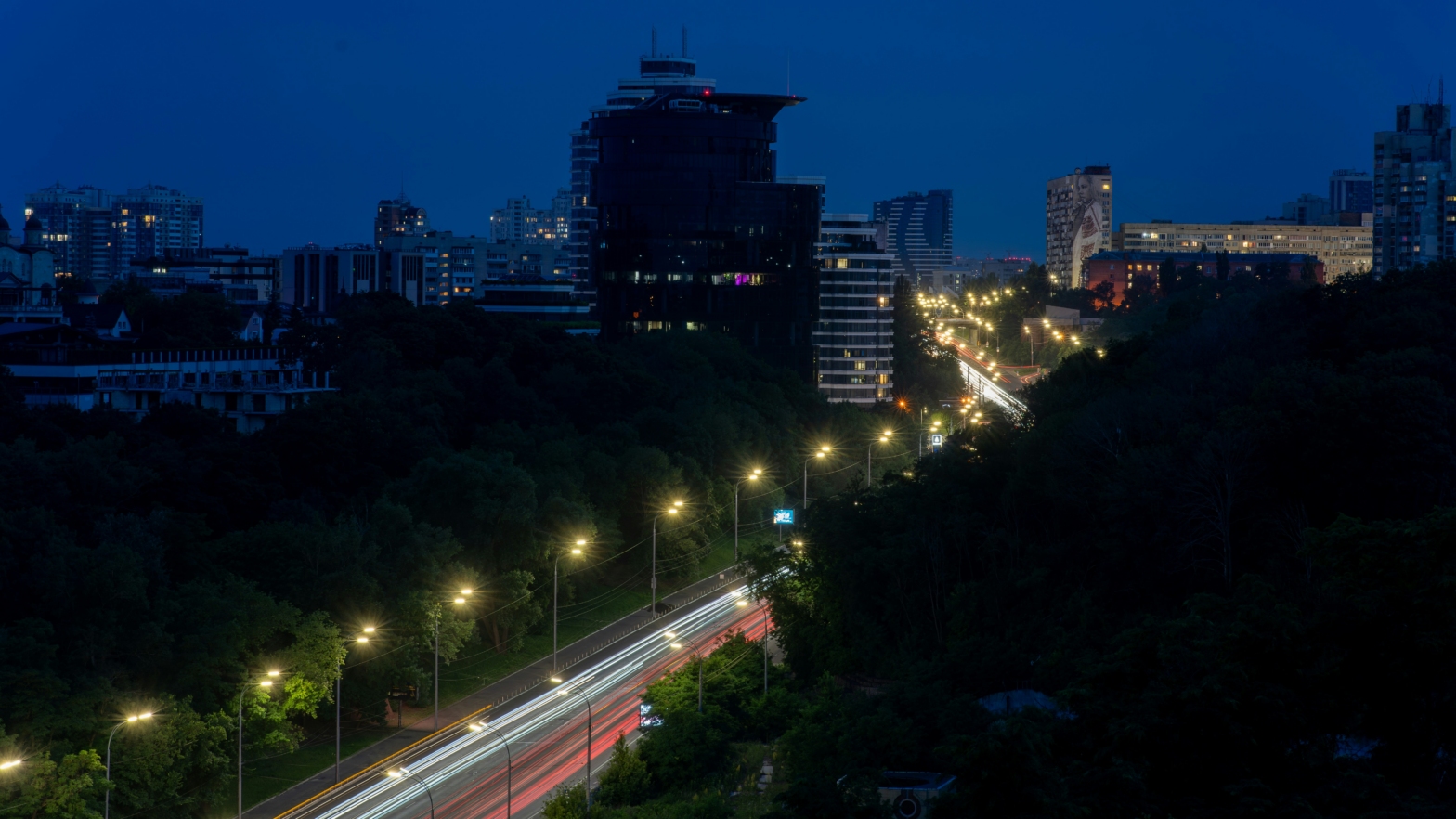Pilot projects in the spotlight: Smart and sustainable energy, exploring the future of urban interaction, future transportation and well-being
The focus of the day was of course on the presentations carried out by pilot project teams and partnering cities, highlighting the impressive outcomes achieved through dedicated research and development efforts.
Martin Thalfeldt from FinEst Centre for Smart Cities shared the results of their project, DigiAudit, which focused on creating a solution for real-time monitoring of energy performance and indoor climate.
This solution has been licenced to an Estonian IoT company Thinnect that will continue the development and service offering in wider markets.
Einari Kisel and Diana Vene (Võru City) gave a presentation on RESTO, a comprehensive renovation strategy tool for local municipalities.
They shared Võru’s case and how the tool can analyse about 12,000 renovation options and find the best for certain buildings and areas.
Tarmo Korõtko and Jaanus Tamm (Tartu City) took the stage to discuss their pilot project on Microgrids and Energy Storage, emphasizing the importance of smart and sustainable energy in cities.
An open-source platform has been created to manage energy resources efficiently and take the maximum of renewable and community energy and create a readiness for crisis situations.
Mai Andresson (Tallinn City) and Viktorija Prilenska introduced GreenTwins, an exciting project involving hybrid 3D interfaces for urban digital twin interaction.
In the project, 3D digital green twins were created for Tallinn and Helsinki, and a helpful tool built on that for urban planners to use 3D nature catalogue to consider urban greenery while making development decisions.
A collaboration hub ‘AvaLinn’ will also be opened in Tallinn at the end of August. It’s open for urban planners but also for city residents and enthusiasts who want to use collaboration as a way to create more livable cities.
Raivo Sell and Tanel Tammela (Rae County) shared insights of the Future Mobility pilot, focusing on mobility as a service (MaaS) integration and the utilization of big data for future public transport.
A strong framework for piloting and utilising a self-driving vehicle has been created and can be used for various municipalities who would want to offer this novel comfortable service to their residents.
Ivo Fridolin, Viktorija Prilenska, and Kaie Enno (Narva City) unveiled their research on Urban Planning Well-Being Score, shedding light on the residents’ feelings and perceptions of the City of Narva.
Based on the pilot project methods they’ve created a tool to objectively assess the well-being of a person in various locations of the city.
Narva will use it for creating their new general plan of the city.
Most of the piloting has been completed in each project, and the smart solutions are now ready to engage new partner cities, businesses, and other collaborators to expand their reach to the wider market and contribute to making our cities more efficient and better living environments.
If you are interested in collaborating with a specific project, we encourage you to get in touch with the FinEst Centre or directly contact the pilot leads. They will be delighted to provide further information and explore potential collaboration opportunities.
Take a look at the moments from the presentations and discussions.
Click here to see the full gallery.
